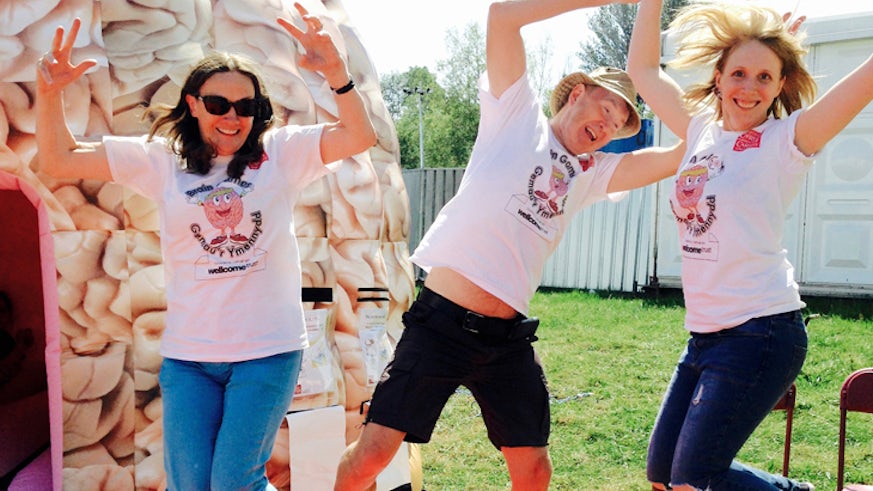Creating a ‘buzz’ in search for new anti-bacterial drugs
20 April 2015

School children have put their green fingers to work in Cardiff city centre to encourage pollinating insects to thrive in tandem with University research.
Pupils from six schools in the city planted seedlings in The Hayes and had the opportunity to learn about types of plants that encourage bee pollination.
It marks the start of a programme involving the University, pollination consultancy Pollen8 Cymru and St David's shopping centre that will see the creation of other bee-friendly areas across the city.
Les Baillie, Professor of Microbiology at the School of Pharmacy and Pharmaceutical Sciences, is using bees in an attempt to find new drugs to treat hospital infections because of the problem of antibiotic-resistant bacteria.
"Honey produced by bees can have anti-bacterial properties so we've been working with the National Botanic Garden of Wales to find out more," he said.
"As part of research started by one of our PhD students, Jenny Hawkins, we were able to identify plants that bees were visiting to make honey.
"We're now trying to put these plants in as many places as possible for the bees to feed upon and produce honey with anti-bacterial properties.
"It's satisfying to see so much support locally and I'm delighted plants will be cultivated in the heart of Cardiff."
This project has also been supported by the Cardiff University Schools Partnership funded by RCUK.
Each school will be able to re-visit their adopted planters throughout the summer to see their plants, donated by Wyevale Garden Centres, in full bloom, and observe which kind of wildlife are enjoying them.
The University has already worked with St David's shopping centre to introduce bee hives to the roof of St David's which are now home to more than 60,000 bees.
Using the resulting honey, St David's is working with the University and Pollen8 Cymru to conduct research into the production of antibacterial honey.
Steven Madeley, St David's centre director said: "We're pleased to be able to play our part in attracting wildlife to the city centre area, and are looking forward to seeing the planters grow and develop over the summer months."
Julian Rees, Pollen8 Cymru project manager, added: "From the outset, this project has generated tremendous enthusiasm from children and adults to learn more about bees, butterflies, birds and other wildlife."